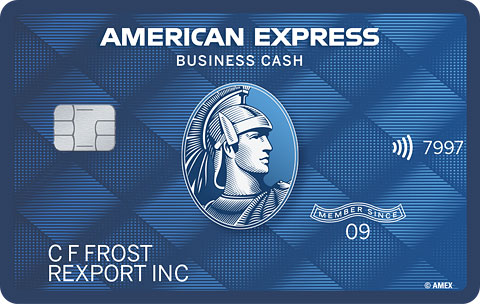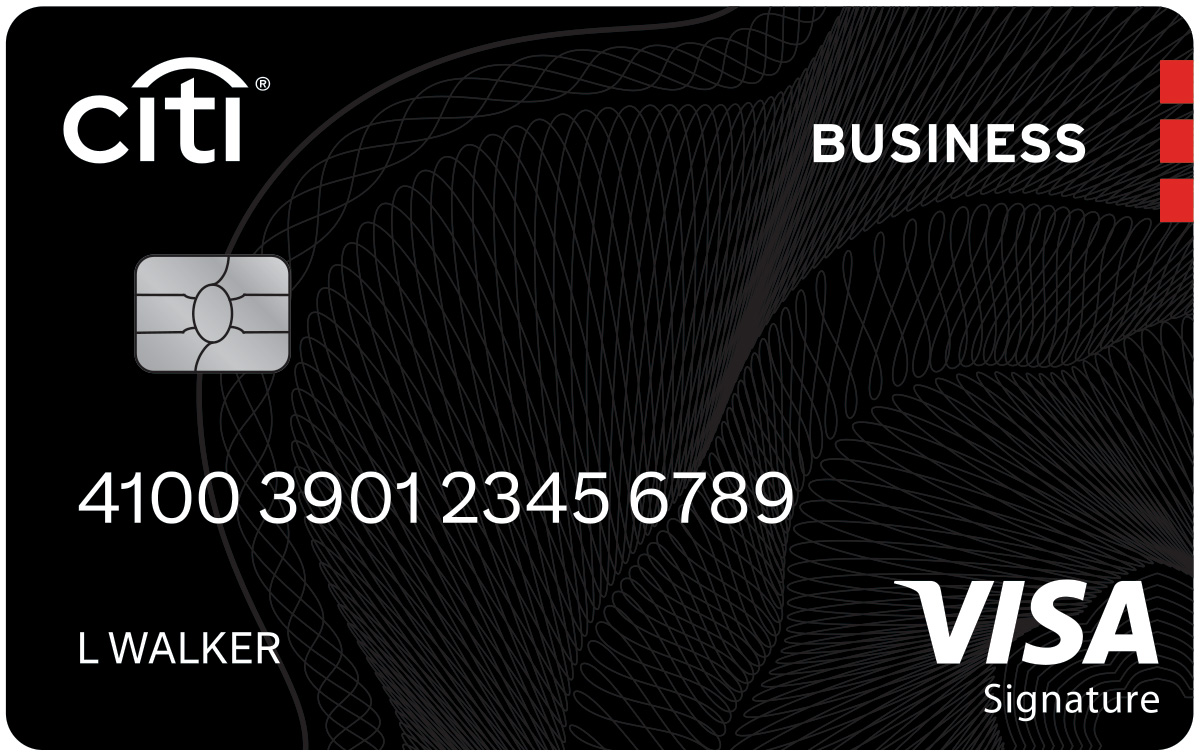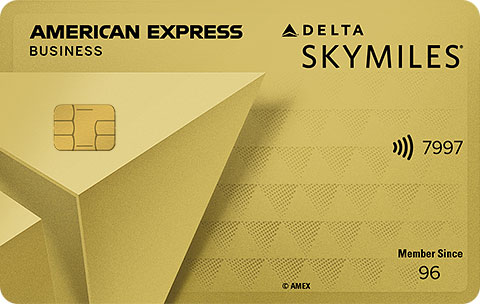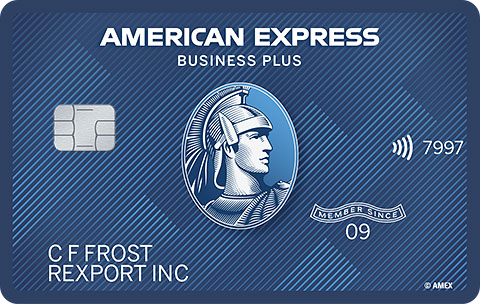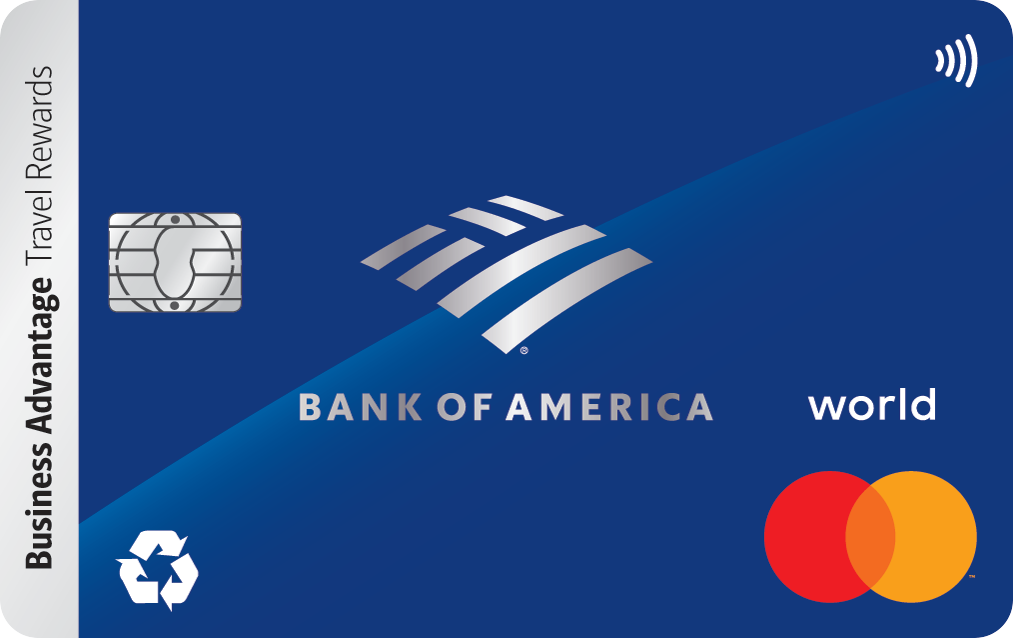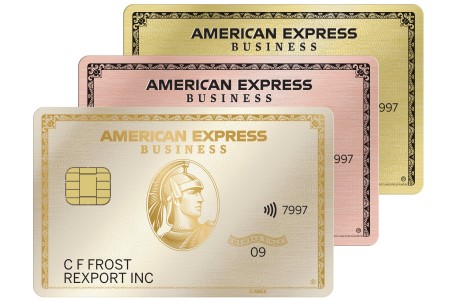As the founder of a budding new company, there are plenty of good reasons for you to consider using a business credit card. Not only can it help you keep personal and business finances separate, it can come in handy covering cash flow, help build business credit, and put money in your pocket through perks and rewards.
Keep reading to find the best business credit cards for startups.
How to Choose the Right Business Credit Card for Your Startup
When considering a business credit card for your young business, you need to ask yourself a few questions:
- How much do you plan to spend?
- What types of rewards do you value?
- Do you need a 0% introductory APR?
- What are your personal credit scores?
- Do you want to build business credit?
Once you’ve answered questions like these, you can narrow down your choices. For example, if you’re trying to build business credit, you need to ensure that the cards you consider report your balance and payment history not just to the major consumer credit bureaus, but to the business credit bureaus as well.
If you’re looking to earn travel rewards, then you should start by looking for cards that offer a strong welcome bonus. Typically, you’ll earn a large welcome bonus after completing a minimum spending amount within several months, or several billing cycles within account opening. You also want to find a card that offers you a strong reward rate in points or miles for the kinds of purchases your business makes the most.
Likewise, the best card for earning cash back rewards will also offer a valuable welcome bonus and rewards for spending. You could find a card that offers a sold rewards rate on all purchases, or one that offers bonus cash back for some common business purchases, such office supplies, and cash back on all other purchases.
Business cards with 0% APR promotional financing offers are also available, and can be a great way to save money on interest charges while you get your business off the ground.
Finally, you have to consider your personal credit history and credit score, as there’s no use applying for a card that you can’t possibly qualify for.
100+ business credit cards in one click
Business credit cards can help you when your business needs access to cash right away. Browse your top business credit card options and apply in minutes.
Best Business Credit Cards for Startups
We’ve picked ten great business credit cards for startups and categorized them to help you pick the best credit card for your business. Keep in mind that the terms of card offers here may change, and as always, terms and conditions apply.
1. Great for Fair or Good Credit: The American Express Blue Business Cash™ Card
The American Express Blue Business Cash™ Card is a business credit card that offers While many business credit cards require excellent credit scores, this card is more flexible. There’s an annual fee of $0. As for foreign transaction fees, they are: 2.7% of each transaction after conversion to US dollars.
One of the highest cash back rates available for small business cards.
Pros
- Attractive intro financing offer
- High rates of cash back for business spending
- No annual fee.
Cons
- No rewards bonus for initial spending
- Foreign transaction fees.
Intro APR
Purchase APR
Annual Fee
Welcome Offer
2. Great Cash Back Bonus Rewards: Ink Business Cash® Credit Card
Not sure what types of rewards make sense for your new business? Consider a cash back card. The Ink Business Cash® Credit Card offers a tiered reward structure with bonus cash back in specific spending cash back categories.
The annual fee is $0. However, if you make purchases outside the US, be aware of the foreign transaction fee: 3% of each transaction in U.S. dollars
All information about the Chase Ink Business Cash℠ Credit Card has been collected independently by Nav. This card is not currently available through Nav. To see what business credit cards are available, please visit the Nav Credit Card Marketplace.
Pros
- All information about the Chase Ink Business Cash℠ Credit Card has been collected independently by Nav
- This card is not currently available through Nav
- To see what business credit cards are available, please visit the Nav Credit Card Marketplace.
Cons
- All information about the Chase Ink Business Cash℠ Credit Card has been collected independently by Nav
- This card is not currently available through Nav
- To see what business credit cards are available, please visit the Nav Credit Card Marketplace.
Intro APR
Purchase APR
Annual Fee
Welcome Offer
All information about the Ink Business Cash® Credit Card has been collected independently by Nav. This card is not currently available through Nav. To see what business credit cards are available, please visit Nav’s credit card page.
3. Save With Gas Rewards: Costco Anywhere Visa® Business Card by Citi
If your business will take you on the road frequently, you may want a gas rewards credit card. A top pick is the Costco Anywhere Visa® Business Card by Citi. Great fuel prices already make Costco a popular place to fill up. Save more thanks to the general cash back rewards for fuel purchases: Earn 5% cash back rewards on gas at Costco and earn 4% cash back on other eligible gas and electric vehicle (EV) charging purchases for the first $7,000 combined spend per year, and then 1% thereafter. 3% cash back on restaurants and eligible travel purchases and eligible travel, including Costco Travel. 2% cash back on all other purchases from Costco and Costco.com. 1% cash back on all other purchases.. There is a $0 annual fee with your paid Costco membership.
Intro APR
Purchase APR
Annual Fee
Welcome Offer
4. Excellent Airline Rewards Welcome Offer: Delta SkyMiles® Gold Business American Express Card
If you’re a Delta frequent flier, you’ll want to consider a Delta co-branded credit card, which offers cardmembers the opportunity to earn points toward flights, priority boarding, free checked bags and more. If it’s a generous welcome offer you’re looking for, the Delta SkyMiles® Gold Business American Express Card can be very rewarding.
Limited Time Offer: Earn 90,000 Bonus Miles after spending $6,000 in purchases on your new Card in your first 6 months of Card Membership. Offer Ends 7/16/25.Delta SkyMiles® Gold Business American Express Card
For business owners who fly Delta enough to want the rewards and benefits without the high annual fee.
Pros
- Amazing limited time offer! Perks when flying with Delta
- Makes it easier to earn Medallion elite status.
Cons
- Delta SkyMiles are not worth as much as other airline miles.
Intro APR
Purchase APR
Annual Fee
Welcome Offer
5: Rewards, Welcome Offer and Intro APR: Bank of America® Business Advantage Customized Cash Rewards Mastercard® credit card
This card offers something for everyone: a 0% introductory APR offer, a generous cash back program with a high cash back rate in the category of your choice, and a welcome offer of $300 online statement credit after you make at least $3,000 in purchases in the first 90 days of your account opening. All this with an annual fee of $0.00.
Intro APR
Purchase APR
Annual Fee
Welcome Offer
6: Great for Financing Startup Costs: The Blue Business® Plus Credit Card from American Express
Pay for startup costs over time with an APR of 0% on purchases for 12 months from date of account opening.
The annual fee is $0 and you’ll earn rewards: Earn 2X points on everyday business purchases such as office supplies or client dinners. 2X applies to the first $50,000 in purchases per year, 1 point per dollar thereafter. Terms and limitations apply.
The Blue Business® Plus Credit Card from American Express
A great business card for flexible spending and travel rewards points.
Pros
- Competitive intro APR offer and rewards rate
- No annual fee
- For a limited time, earn Membership Rewards® points on initial spending.
Cons
- Foreign transaction fee.
Intro APR
Purchase APR
Annual Fee
Welcome Offer
7. Bank of America® Business Advantage Travel Rewards World Mastercard® credit card
Pay for startup expenses over time with and intro APR of 0% for 9 billing cycles on purchases There’s also a generous welcome offer that lets you earn 30,000 online bonus points after you make at least $3,000 in purchases in the first 90 days of your account opening which can be redeemed for a $300 statement credit towards travel or dining purchases. Finally, earn travel rewards on purchases: 3 points for every $1 spent for travel booked through the Bank of America® Travel Center and 1.5 rewards points for every $1 spent on all purchases.
Intro APR
Purchase APR
Annual Fee
Welcome Offer
8. Extended 0% Intro APR Offer: U.S. Bank Business Platinum Card
If you are looking for financing for your startup, a 0% APR credit card may be an excellent option. The offers a solid intro APR: 20 months of 0% APR financing on new purchases and balance transfers, with a 3% balance transfer fee. After that, the standard APR is 11.99% to 20.99% APR, variable. It offers Visa Spend Clarity to help track your spending and manage your expenses, and there’s no annual fee for this card.
*All information about the U.S. Bank Business Platinum Card credit card has been collected independently by Nav. This card is not currently available through Nav. To see what business credit cards are available, please visit the Nav Credit Card Marketplace.
Three Additional Cards to Consider
If you didn’t find the right card from our picks for the best startup business credit cards above, here are three additional credit cards worth considering.
American Express® Business Gold Card
This card carries a higher annual fee, but offers a lot of card perks that many business owners find worth it.
High annual fee, best for large purchases in consistent categories.
Pros
- This card has a great rewards program and offers flexibility compared to true charge cards.
Cons
- High annual fee
- Only 1x rewards outside of your top categories.
Intro APR
Purchase APR
Annual Fee
Welcome Offer
Ink Business Preferred® Credit Card
This is an excellent rewards card with a very strong welcome bonus. However, make sure your business will have enough expenses to earn the welcome bonus. Cell phone protection is another perk you may want to take advantage of.
New Cardmember Offer! Earn 100,000 bonus points after you spend $8,000 on purchases in the first 3 months from account opening.All information about the Chase Ink Business Cash℠ Credit Card has been collected independently by Nav. This card is not currently available through Nav. To see what business credit cards are available, please visit the Nav Credit Card Marketplace.
Pros
- All information about the Chase Ink Business Cash℠ Credit Card has been collected independently by Nav
- This card is not currently available through Nav
- To see what business credit cards are available, please visit the Nav Credit Card Marketplace.
Cons
- All information about the Chase Ink Business Cash℠ Credit Card has been collected independently by Nav
- This card is not currently available through Nav
- To see what business credit cards are available, please visit the Nav Credit Card Marketplace.
Intro APR
Purchase APR
Annual Fee
Welcome Offer
All information about the Ink Business Preferred® Credit Card has been collected independently by Nav. This card is not currently available through Nav. To see what business credit cards are available, please visit Nav’s credit card page.
Capital on Tap Business Credit Card
The welcome offer on this card will be appealing to some business owners, but it does require a fairly high amount of spending so it may be a best pick for businesses with higher spending needs.
How To Get the Most From a Business Credit Card
Not all cards are created equal. You’ll want to choose one that best fits the needs of your new business. If you’ll travel often, for example, you might want to go with a card that offers great travel rewards, such as points you can use toward airfare or hotel rewards. Sign-up bonuses or bonus points for certain types of spending (at restaurants, for example) can offer even more value the first year.
Cash back rewards are also very popular, as you can spend the cash any way you choose. Some cards, like The American Express Blue Business Cash™ Card offer cash back on all eligible purchases, with a high cash back limit per year.
Other cash back cards may offer higher cash back rewards in certain spending categories, such as gas stations or office supply stores. Try to anticipate your spending to make sure you choose the right card, but keep in mind you can shop for a new card if your needs change.
If you’re wanting to finance your startup costs over several months, or to transfer existing debt from a high cost loan or credit card, you’ll want to choose a card with a low interest rate or 0% introductory APR offer. Most credit cards carry a variable APR, and will set the rate at least in part based on the applicant’s creditworthiness. If you decide to take advantage of a 0% APR introductory rate, make your credit card payments on time. Most credit card issuers reserve the right to raise your rate on your business credit card if you pay late. Stay on top of when credit card payments are due, or better yet, set up automatic payments.
A business credit card can also be a great way for a newer business to build business credit. If the card reports to the business credit bureaus (not all of them do), a good payment history will help you demonstrate the ability to make timely payments — one of the first steps to building a good business credit profile (even if your credit is less than perfect right now).
Learn which business credit cards can help you build business credit here.
Maximizing Rewards and Benefits for Your Startup
You’re going to have startup expenses. Charging those purchases to a rewards credit card can be very, well, rewarding.
Picking the right rewards card will help you leverage the purchases you’re already making to get rewards, discounts or cash back. Before you hit that apply now button, weigh the benefits against the cost of the card. Premium cards, including business gold cards or platinum cards will carry higher annual fees, for example, but provide higher tier rewards. Even among specific issuers (such as Bank of America, Chase or CapitalOne), you’ll find they offer several different business credit card programs.
Think about what types of rewards you’ll use the most. Are you loyal to a particular airline, for example? An airline cobranded credit card can earn you points toward future travel as well as benefits like free checked bags, upgrades, airport lounge access and more.
General travel rewards cards can help you earn points that can be used for travel with various partners. You can redeem points for hotels, flights and more. Popular examples include Chase Ultimate Rewards points, American Express Membership Rewards points, and Capital One Travel rewards that can be redeemed through Capital One Travel.
If you aren’t sure what type of rewards program is best, you probably can’t go wrong with cash back. Any business — including new businesses — can use cash back!
Many card programs will also allow you to redeem rewards for gift cards. Although that type of redemption may not give you the highest return, it can allow you to use points for purchases your business needs to make anyway.
Be sure to weigh the cost of rewards against the annual fee and interest. If you are going to carry a balance, look for a card with a low interest rate.
Understanding Interest Rates: A Cost-Benefit Analysis
If you will carry a balance, the interest rate (or APR) should be at the top of the list when it comes to deciding which card to get. It can be difficult to nail down your rate before you apply, as most card issuers list a range of interest rates. You’ll find out your exact interest rate after you apply and are approved.
Most business credit cards have an underlying line of credit that you can use to pay for purchases over time. (Some cards, including charge cards, require payment in full.) That makes them helpful for short-term financing.
While credit card interest rates are higher than some types of financing, such as small business loans from banks, they are often lower than other popular types of financing such as business cash advances. Plus business credit cards are available to new businesses, unlike most business financing that requires one to two years or more business history to qualify.
How To Qualify for a Business Credit Card for Startups
Small business credit cards are one of the few business loans available to startups without at least a year in business or strong business revenues. (And yes, when you carry a balance, you’re accessing a loan; the credit card issuer is the lender.) There are a few business credit cards with minimum business revenue requirements but most will accept income from all sources, and will ask questions about the business as well as the applicant’s personal finances to qualify. Almost every card requires a personal guarantee.
Small business credit cards are typically a better fit than corporate cards when it comes to getting a card for a brand new business. Corporate cards are usually available to established companies with dozens of employees and significant revenues, while small business cards are often available to startups. (An exception is a corporate card from Brex which is available to certain startups that qualify due to investor funding.)
How To Get a Business Credit Card for Startups
Most startups will apply for a business credit card online, though the bank where you have your business bank account might also offer a business credit card. Small business credit cards are typically a better fit than corporate cards when it comes to getting a card for a brand new business.
Nav’s business credit card marketplace is a good place to start. Nav can help you find business credit cards that are right for you based on your unique data.
100+ business credit cards in one click
Business credit cards can help you when your business needs access to cash right away. Browse your top business credit card options and apply in minutes.
Why Use a Business Credit Card for a New Business Instead of a Personal Credit Card
According to a 2023 Forbes Advisor’s poll, more than 62% of startup business owners who relied on credit cards for funding considered them to be a key part of their success. And over 91% of startup owners would recommend using startup credit cards.
Here are three significant advantages to using a business credit card for business purchases:
- Having a business credit card allows you to keep your personal and business expenses separate. You’ll be able to track business spending more easily, making tax time, as well as maintaining a company budget, much less of a headache.
- By getting a card in the name of your business you can start to establish a business credit score separate from your personal one. That means that if you have to make a late payment, your business credit will take the hit instead of your personal credit (there are exceptions — read about which business credit cards report to personal credit bureaus here).
- As you start to establish a business credit profile, you’ll build your business’s credibility. When it comes time to apply for other business financing, solid business credit scores can help you qualify for more financing at better rates.
- Business credit cards offer superior fraud protection compared to business debit cards, checks or cash.
Some entrepreneurs may be hesitant to use credit cards because they’re afraid they will be tempted to run up debt. In that case, a business charge card can be the best business credit card option for some new businesses. Charge cards must be paid in full each month, making them a good alternative to credit cards.
Carefully determine which type of business credit card you need, and join the ranks of entrepreneurs whose mastery of this important resource plays a continuing and vital role in their success.
How To Build Startup Business Credit
If you’re using a credit card that reports your balance and payment history to business credit bureaus then you will build business credit with responsible use. This means that you pay your bills on-time and carry little, if any debt.
Beyond using a business credit card, it helps to establish a credit history with vendors and suppliers that will report your payment information to business credit bureaus. Nav Prime offers up to two built-in tradelines. Finally, you should continue to monitor your business credit reports to ensure the information there is accurate and up to date.
Start your business credit journey
Build business credit, monitor credit health, and accelerate growth — all with Nav Prime.
Tips for Maintaining Good Credit Health for Your Startup
There are three key steps to good business financial health for your startup:
- Spend carefully. Many businesses find it takes longer than expected (and requires more money than planned) to turn a profit. Think through each purchase carefully and ask yourself how that purchase will help your business reach its financial goals. This can help you avoid debt that you can’t repay.
- Use financial management tools. Whether it is accounting software such as Quickbooks, invoicing software, cash flow monitoring tools, or automatic payments on your credit cards, take advantage of tools that will help you streamline your business finances so important tasks don’t fall through the cracks. Paying late will often mean expensive late fees, and those late payments can damage your credit, so be sure to set up systems to help you pay on time.
- Review your finances regularly. Get in the habit of monitoring your business finances on a regular basis. One way you can do this is to set up a recurring “meeting” on your calendar where you catch up on financial tasks or simply review your finances.
FAQs on Best Business Cards for Start Ups
What Credit Score Is Needed To Get a Business Credit Card?
The vast majority of small business credit cards require good or excellent credit. 700 is a typical minimum personal FICO credit score requirement, though a number of cards set the minimum at 680. Some are more flexible and will issue to cardholders with fair credit, which often means scores in the mid-600s.
In other words, startup business credit cards with no credit are harder to find.
Very few business card issuers check business credit scores, though it’s a good idea to build business credit for your startup as soon as possible to help your business qualify for various types of financing including term loans or lines of credit.
Can I Get a Business Credit Card With Bad Credit?
Only a few issuers offer business credit cards to those with bad credit, and those typically come in the form of secured business credit cards. Secured cards work just like any other card, but they require the payment of a refundable security deposit before you can open an account.
Find the best business secured cards here.
If you don’t have a good credit history, you may also want to consider other financing options for startups such as crowdfunding or net-30 vendors; neither are likely to check personal credit.
In addition, you may want to consider a personal credit card available to those with lower credit scores to establish a positive payment history.
Can a New LLC Get a Credit Card?
Yes, you can apply for a credit card for your LLC. Understand, though, that major card issuers will require you to provide personal information when you apply, and will likely require a personal guarantee. Although the card will be issued in the name of the business, the person who applies agrees to be responsible for payments if the business doesn’t repay the debt.
What Do I Need to Apply for a Business Credit Card?
You can often apply for a business credit card as soon as you start your business. That’s true even if you are a sole proprietor, freelancer or independent contractor with no employees. However, these cards are designed for small business owners so you will likely need to provide an Employer Identification Number (EIN) for your business, so it’s a good idea to get that from the IRS. (Of course a Social Security Number will also be required for the personal credit check.)
Also, if your goal is to build business credit, keep in mind the details you provide about your business may wind up on your business credit reports, so think about the address and phone number you want to provide.
If you have employees and want to issue employee cards, be prepared with the employee names for those cards. (You can also request them later if you choose.) Most issuers offer free employee cards and allow you to set spending limits on those cards.
Can You Get a Business Credit Card as a Startup?
You can always get a business credit card as a startup, and card issuers aggressively market their products to new companies. If you’ve already incorporated as an LLC or as another type of company, you can use your Employer Identification Number (EIN) with your application. Otherwise, you can simply use your Social Security Number (SSN) instead.
Either way, startups can use their projected revenue and expenses when filling out the application, which will rely on your personal credit history and personal guarantee.
What Is the Easiest Business Credit Card To Get?
If you have good to excellent personal credit, and meet other qualifications, many major credit cards will be within reach. If you don’t have good credit. and can afford a security deposit, a secured credit card will be the easiest credit card to get. Secured cards typically have low credit score requirements and can be helpful to build or rebuild credit. Unfortunately there are very few business secured cards.
Otherwise, credit cards for fair to good credit will be the most flexible in terms of credit requirements.
Can I Use a Business Credit Card for Personal Expenses?
A credit card issuer is not going to question each purchase to determine whether you used it for a business expense or a personal one. However, it’s not a best practice to use a personal credit card for business expenses, or vice versa.
If your business is structured as an LLC, S Corp or C Corp, routinely commingling business and personal expenses can put your personal assets at risk. And using a personal card for business expenses may mean you miss out on valuable tax benefits.
Whenever possible, use a business credit card for business expenses and your personal cards only for personal purchases.
Start your business credit journey
Build business credit, monitor credit health, and accelerate growth — all with Nav Prime.
Build your foundation with Nav Prime
Options for new businesses are often limited. The first years focus on building your profile and progressing.

Gerri Detweiler
Education Consultant, Nav
Gerri Detweiler, a financing and credit expert, has been featured in 4,500+ news stories and answered 10,000+ credit and lending questions online. In addition to Nav, her articles have appeared on Forbes, MarketWatch, and Startup Nation. She is the author or co-author of six books, including Finance Your Own Business, and she has also testified before Congress on consumer credit legislation.

